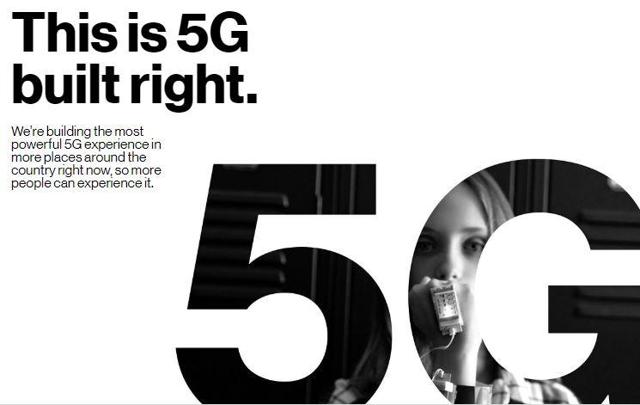Summary
- 5G and pricing power sounds great for Verizon. Unfortunately, the marketplace may come to a different conclusion.
- Verizon's deal with Disney+ isn't all that it seems. In fact, Verizon may be paying to help Disney while hurting itself.
- Verizon has a Comcast conundrum and millions of customers could soon realize they are overpaying on their wireless bill by as much as 57%.
Verizon (NYSE: VZ) has held the de-facto title of wireless leader for a while it seems. Though different companies claim better data speeds, a stronger signal, or better deals, the numbers speak for themselves. At last count, Verizon had nearly 90 million consumer postpaid subscribers, which puts the company comfortably in front of AT&T (NYSE: T) at about 74 million. However, with each passing quarter, I’m seeing holes in Verizon’s armor. I’m not suggesting these issues will spell the downfall of the wireless giant. What I am concerned about, is whether the stock will continue to be a growth and income favorite.
Better coverage, better speeds, higher prices?
The first concern Verizon investors shouldn’t ignore, is the company’s perception that as 5G becomes a more widespread option that it may have pricing power.
In the wireless industry, Verizon’s network lead has been a competitive advantage for a while. Third-generation wireless was much better than the prior version and customers could start using data without wanting to tear their hair out. As 4G has become more widespread, most smartphones can essentially do whatever the customer wants. If you want to check e-mail, it’s there. If you want to pay a game online, generally you can with little to no noticeable lag. Though 5G is heavily written about, the change may be more incremental for customers than some realize.
(Source: Verizon Wireless 5G)
Let’s put this in practical perspective. If you want to get your e-mail and you get it in 0.2 seconds instead of 0.5 seconds, is the average user going to notice? What about playing games? If you are playing Candy Crush and you already notice virtually no lag at 4G speeds, will 5G make you have to upgrade your phone or your plan? It’s true that in business applications, 5G may open up new capabilities, but to the hundreds of millions of consumer smartphone users, 5G may not end up being as noticeable as some theorize.
The reason this is such a critical point, has to do with a comment Verizon’s CEO Hans Vestberg made in the last conference call. He said of 5G pricing, “as we get into 5G, you get a fair amount of new potential ways of charging.” He also speculated, “you’re going to get that ubiquitous sort of coverage and capacity, and that will give us an opportunity.”
I hate to be the one to burst investor’s bubbles, but I’m not sure that is the case. A quick comparison between Verizon and AT&T’s current plans, suggests there may not be much price elasticity because of 5G. At present, a subscriber to Verizon’s Start Unlimited plan can pay as little as $35 per month and to get 5G they have to pay an additional $10 per month. However, if they go up to Play More Unlimited at $45 per month, 5G access is included as a “limited time offer.”
Where AT&T is concerned, customers can also start at $35 per month for unlimited talk, text, and data. If they move up to $40 per month, they get “5G access.” Considering that the number two network is offering 5G to customers at a price $5 per month cheaper than Verizon, what makes Verizon believe that in the future users will pay more? In addition, this comparison only looks at Verizon and AT&T, I’m sure T-Mobile will have something to say about 5G pricing as well. 5G may allow Verizon to continue growing its wireless business as more devices come online, but I’m not sure that the promise of 5G equals a transformative growth cycle for the company. Instead, slow incremental improvement is likely the end result.
















